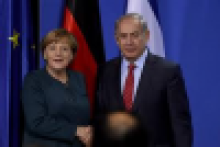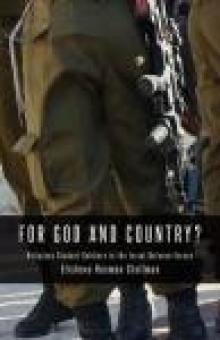ספרים ומאמרים

'Where Israel and Europe Go From Here: Why Economic and Strategic Cooperation Have Never Been Better'
Council on Foreign RelationsEurope is changing, and so is Israel. On the one hand, the economic, security, and identity crisis in Europe is creating new incentives for cooperation with Israel, but on the other, Israel’s rightward shift is a source of increasing friction. Netanyahu’s policies have aggravated many European leaders, and in some parts of Europe helped mainstream a grassroots Boycott, Divestment, and Sanctions (BDS) movement. Yet Israel’s economic and security ties with European states are strong. Meanwhile, a heightened fear of Islamist extremism strengthens the argument of those European leaders who believe they share common enemies with Israel, because they share common values. To fully take advantage of this potential, Israel should take care to protect its reputation as a democracy and act in ways that preserve and promote the two state solution.
לצפייה במאמר המלא ניתן ללחוץ כאן

For God and Country? Religious Student-Soldiers in the Israel Defense Forces
University of Texas PressIn many modern armies the religious soldier is suspect. Civilians and officers alike wonder if such a soldier might represent a potential fifth column. This concern is especially prominent in the public discourse over the presence of religious Orthodox Jews serving in the Israel Defense Forces. Will they obey their commanding officer or their rabbi? With research collected over almost a decade, including hundreds of hours of interviews, Elisheva Rosman examines this question of loyalties and reveals how religious soldiers negotiate a place for themselves in an institution whose goals and norms sometimes conflict with those of Orthodox Judaism.
For God and Country? focuses on the pre-service study programs available to religious conscripts. Many journalists and scholars in Israel are suspicious of the student-soldiers who participate in these programs, but in fact, as Rosman’s research demonstrates, the pre-service study programs serve as mediating structures between the demands of Religious Zionism and the demands of the Israel Defense Forces and do not encourage their students to disobey orders. This was especially apparent during the disengagement from Gaza in 2005. Many in Israeli society predicted student-soldiers would defy their orders, per the instruction of their religious leaders, but this did not happen as expected. In high profile cases such as this and in matters encountered daily by religious soldiers—the mixing of the sexes, for instance—Rosman has discovered that the pre-service study programs can successfully serve as agents of civil society, both able to curb the military’s efforts to meddle in civilian affairs and vice versa.



